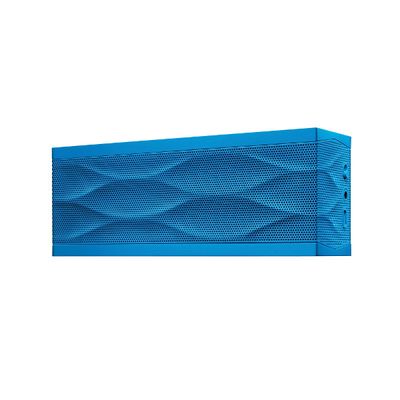
For a brief period — from 2010 to 2012 or so — the Jawbone Jambox was everywhere. It wasn’t the first battery-powered Bluetooth speaker, but it was the first to break through to the mass market. Stylish and with just enough sound quality to make for good outdoor listening, it quickly took off. I was living in San Francisco at the time, and sunny days at Dolores Park suddenly became bubbles of competing Jamboxes, the distinctive Lego-like speakers pumping Beach House or Wiz Khalifa (ah, 2011).
The rise of the Jambox hit perfectly with the confluence of two things: nearly everyone owning a smartphone with a Bluetooth antenna and the rise of streaming music. Smartphones meant that anyone could DJ. Spotify’s migration from Sweden to the U.S. in mid-2011 meant that everyone now carried a huge library of music with them at all times. And the Jambox, a product that would have been, at best, a pricey novelty, suddenly became ubiquitous.
Jawbone, however, had its sights set on bigger things. Even in 2011, the company was determined to get into what, at the time, seemed like a burgeoning market: fitness tracking and wearables. That would ultimately prove to be its undoing; its fitness trackers never sold especially well, and the company it most directly competed with, Fitbit, is itself facing financial difficulties.
Meanwhile, one of the few American companies able to make both great hardware and software, Apple, swooped in with a Watch that further squeezed the market. According to the Information, Jawbone, once valued at $3 billion, already filed papers to declare insolvency, with its CEO and remaining staff shifting over to a new company, Jawbone Health. Its CEO seems determined to carry on the fight for health trackers there, but the outlook remains grim for the market. (I imagine there are a lot of résumés being updated even as people change their email signature to Jawbone Health.)
Even if Jawbone had stayed strictly in its lane and produced Bluetooth speakers, it would have faced a tough road. The Jambox was easy to imitate, and cheaper (and eventually better-sounding) versions soon flooded the market. The wireless Bluetooth speaker isn’t dead — my inbox gets hits daily with news of another company that has a Bluetooth speaker that can float, or is solar powered, or doubles as a purse. But the companies that dominate the market now are either audio manufacturers with long experience and supply chains, like Bose and JBL, or Chinese upstarts that can be aggressive on price. Jawbone was likely always going to get squeezed out. Its choice to chase after fitness trackers only hastened its demise.





























